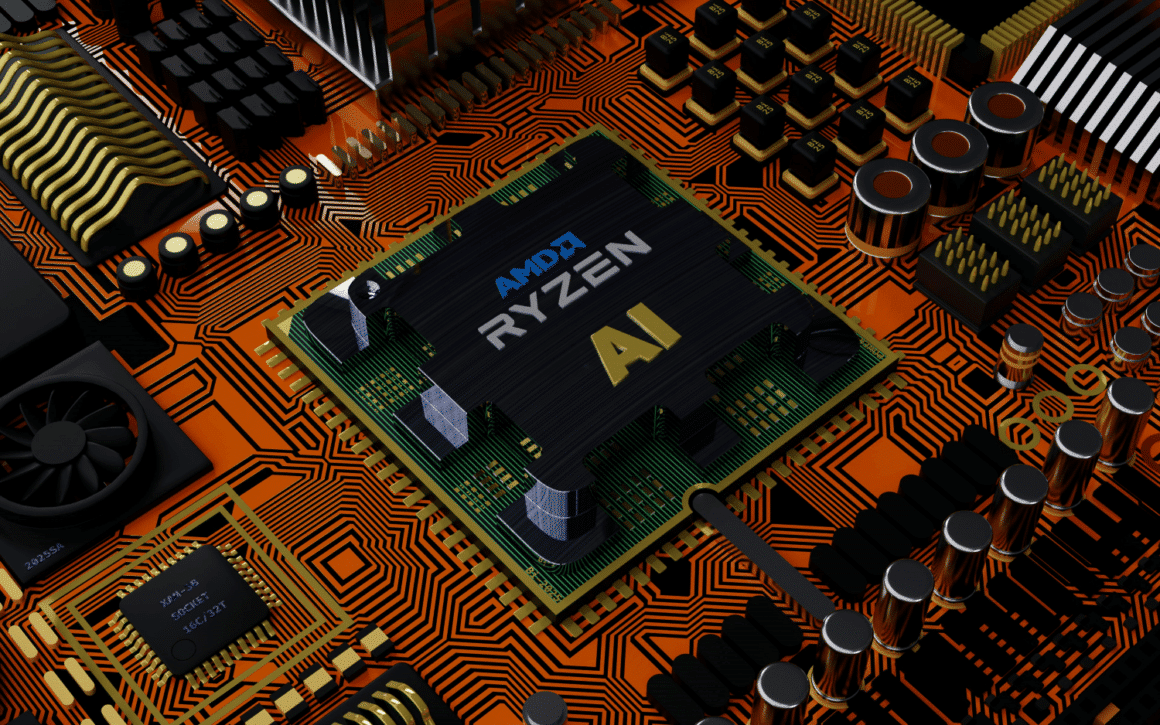By: Ethan Taylor
Artificial Intelligence (AI) has swiftly become a cornerstone in the field of software development, reshaping the way we build, test, and deploy applications. As developers face complex challenges in delivering efficient and reliable software, integrating AI offers innovative solutions and unprecedented efficiency.
Senior Software Developer, Joseph Heimann explores the transformative impacts of AI on software development, highlighting key innovations and insights that can revolutionize your approach. Understanding how AI influences this space is crucial to unpacking the significant shifts AI brings to software development.
The Role of AI in Modern Software Development
As the demands on software developers grow, artificial intelligence is stepping up to play a key role. AI is reshaping the tools and processes developers rely on every day. By understanding how AI is influencing software development, we can appreciate the ways it is transforming the speed and quality of software creation.
AI-powered tools are like the hidden engines boosting the software development lifecycle. These tools analyze patterns, predict needs, and automate tasks that once slowed down the process. These platforms reduce the time spent searching for solutions or fixing syntax errors. Automation also plays a big role. It helps by managing repetitive tasks, such as testing code for bugs or deploying updates, cutting down hours that developers would otherwise spend manually checking their work.
The way AI handles code generation and review is nothing short of revolutionary. AI algorithms can auto-generate code based on given parameters, turning tedious tasks into automated processes. This saves time and allows for fewer errors by adhering to predefined standards.
When it comes to reviewing code, AI enhances accuracy and speed. It identifies potential security vulnerabilities and optimization opportunities faster than a human eye could catch. This means teams can catch mistakes early, ensuring higher code quality and reliability.
“AI acts as an intelligent assistant that scrutinizes every line of code, giving developers peace of mind and confidence in their work,” says Joseph Heimann. “Incorporating AI into software development safeguards that everything runs smoothly while developers take center stage in bringing their ideas to life.”
Real-world Applications of AI in Software Development
Artificial Intelligence is reshaping software development, bringing innovations that enhance both user experiences and operational efficiencies. As developers embrace AI, they unlock possibilities previously thought unattainable, making technology not just smarter but also more intuitive.
A personalized experience is made possible through AI’s integration into e-commerce platforms. These platforms harness AI to analyze vast amounts of user data to tailor recommendations that feel like a personal shopping assistant. AI algorithms study browsing habits, purchase history, and even the time spent on specific products to predict what a user might want next. AI not only enhances the shopping experience but also boosts sales and customer retention.
On the backend, AI optimizes inventory management and logistics. Predictive analytics help retailers maintain optimal stock levels by anticipating demand spikes and minimizing overstock. In addition, AI assists in customer service, using chatbots that offer immediate assistance and resolve issues effectively. This combination of front-facing personalization and backend efficiency illustrates how AI is indispensable in modern e-commerce.
Mobile apps have become an essential part of our daily lives, and AI plays a crucial role in their evolution. Developers are now integrating AI to craft apps that feel bespoke to each user. Personalization in mobile apps isn’t limited to just content suggestions. AI learns from user behavior to offer features like adaptive interfaces, which adjust based on how an individual interacts with the app.
AI’s impact on mobile app development marks the dawn of a smarter era where apps not only meet user needs but anticipate them. By molding experiences that are as dynamic and evolving as user expectations, AI is the catalyst for creating the next generation of mobile innovations.

Challenges and Ethical Considerations
The rise of AI in software development also introduces significant challenges and ethical issues. Two of the foremost concerns that developers face involve biases in AI models and the risks surrounding data privacy.
Bias in AI algorithms happens when these models reflect the inequalities present in the data they were trained on. If AI systems are trained on biased data, they will likely perpetuate and even amplify those biases.
Notes Heimann, “To ensure fairness, developers need to scrutinize their models.”
Tools designed to detect bias, along with diverse and representative datasets, can help. But the role of human oversight is crucial. Decisions powered by AI shouldn’t mean humans stop thinking critically.
Another pressing concern is how AI systems handle personal data. These systems often require vast amounts of data to function, posing potential risks to privacy and security with the amount of personal data that AI collects.
Without robust data protection measures, this information can be vulnerable to breaches. Developers must prioritize safeguarding user data by implementing strict encryption methods and setting clear data access protocols. It’s essential to comply with existing data privacy laws and regulations, like GDPR, to ensure users’ trust isn’t eroded.
Future Trends in AI and Software Development
In recent years, artificial intelligence has become a significant force shaping the landscape of software development. Its influence is only expected to grow, impacting various aspects of how software is crafted and delivered. Developers and businesses can better prepare for the changes ahead, ensuring they remain competitive and innovative in an ever-evolving field.
AI-driven DevOps is becoming a catalyst for transforming traditional software development practices. By integrating AI into DevOps, teams can enhance collaboration and streamline continuous delivery processes. DevOps teams can predict potential issues before they arise, leading to quicker resolutions and improved system reliability. This predictive capability allows teams to move at lightning speed, reducing bottlenecks and increasing productivity.
AI also plays a crucial role in facilitating better communication between development and operations teams. By learning from historical data, AI systems provide insights that harmonize workflows, ensuring everyone is on the same page.
“This synergy fosters a healthier, more collaborative environment, ultimately driving better results,” says Heimann.
The emergence of low-code development platforms enhanced with AI features is a game-changer for software development. These platforms are designed to simplify the creation process, allowing even those without extensive coding knowledge to contribute meaningfully. AI integration into low-code platforms means that users can leverage data-driven insights to build more efficient and effective applications.
AI-infused low-code platforms are setting the stage for a future where ideas are not limited by technical skills. This evolution encourages a more diverse group of thinkers and makers to shape the software of tomorrow.
Artificial Intelligence is transforming software development by offering unprecedented efficiencies and possibilities. The adaptability and intelligence AI brings to the table push developers to rethink approaches, leading to smarter, faster, and more reliable software solutions. Integrating AI into the development processes will open doors to optimization and unimagined creativity.
Published By: Aize Perez













